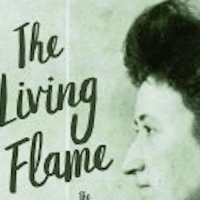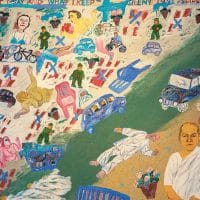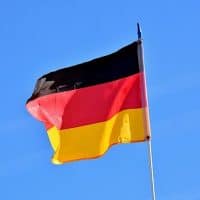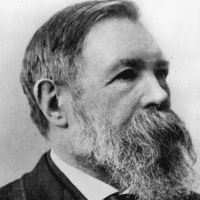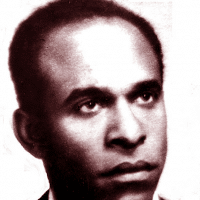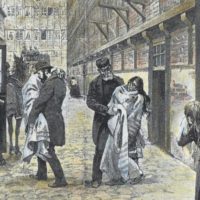-
Airports and rallies
Ding-dong, the wicked witch is dead! A wicked but very male Witch of the East seemed to be crushed under a houseful of angry voters, though this house, unlike Dorothy’s in The Wizard of Oz, was definitely not from Kansas!
-
The Living Flame: The Revolutionary Passion of Rosa Luxemburg by Paul Le Blanc reviewed by Kaitlin Peters
The collection begins with the essay, ‘Rosa Luxemburg (1871–1919)’, that more broadly reviews Luxemburg’s theoretical contributions and political interventions from 1871 to 1919.
-
Bertold Brecht: Collectivism and dialectical materialism in practice
Above all, the better part of that generation, to which Brecht belonged, still aimed at the ultimate defeat of capitalism.
-
Thirty years unified Germany
This Saturday many Germans, party leaders and media pundits above all, will recall October 3, 1990, when their dreams of a unified Germany became reality.
-
Why Modi’s government is not up to the task
The Modi regime believes that no matter how impoverished the people are their electoral support can always be won by promoting Hindutva and effecting a communal polarization. It is an utterly cynical view, but then, the present dispensation represents the acme of cynicism.
-
Profit raten: On Coronavirus and Crisis
Leftists are also arguing over a political-economic understanding of the conditions created by the virus. For example, in Konkret, Justin Monday criticized the current crisis rhetoric by indicating that the deployment of labour-power is not being fundamentally called into question, but only deferred.
-
Which way?
Ups and downs in Germany are less dramatic than in Minsk or the USA, now suffering under the corona pandemic, terrifying forest fires and worrisome election-fever. But Germany, too, could veer left or right.
-
Mirror mirror and politics
“Mirror, mirror on the wall…” Nearly every German knows the story of Snow White. Currently, the question of who is “fairest of them all” faces nearly every German political party or, in modern terms, who can attract more votes in next year’s election.
-
Frederick Engels
On August 5, 1895, Frederick Engels died in London. After his friend Karl Marx (who died in 1883), Engels was the finest scholar and teacher of the modern proletariat in the whole civilized world.
-
Some come, others go
On Saturday, crowds came to Berlin from all over Germany for a huge mass parade, estimated at 17,000 to 20,000. The big crowd in Berlin, after picking up steam for weeks with smaller rallies, insisted that the whole corona virus pandemic had ended or maybe hadn’t really existed at all!
-
Civilizational decay and colonial mentalities. Some reflections on and from Frantz Fanon
When in March 1945 the Allied Army was preparing to cross the Rhine River, advance on Germany and thus give the final blow to Nazism, among the hundreds of thousands of soldiers and colonial troops was a young West Indian.
-
Breakups and leaks
Those still following international relations may have noticed an unusual tearing sound growing louder. Recent developments, not conclusive or complete and yet undeniable, suggest the painful ripping apart of that eternal brotherhood between the German Federal Republic and its great patron, provider and protector, the USA.
-
Socialism, capitalism, and cholera in 19th-century Hamburg
I certainly didn’t expect to spend the start of 2020 wading through nearly 700 pages about the 1892 Hamburg cholera epidemic, but I’m glad I did. Death in Hamburg, British historian Richard J. Evans’ social history of the epidemic, is a page-turner, his passion for the topic nothing short of infectious.
-
Asparagus and bombers
While prices and recipes for asparagus, dates and restrictions for re-opening dominated the media and many conversations, a far more significant matter found little attention. Ever since 1955 an estimated twenty American nuclear bombs have been stored underground at the U.S. Air Force base in Büchel in Rhineland. A German politician recently proposed spending $3 billion on a replacement fleet but ran into a snag.
-
What can normalcy bring?
With COVID-19 figures flattening downward, Germany is limping back to some kind of normalcy. Auto and bike shops, book dealers, barbers and most shops less than 800 m2 can now re-open (with customers 5 ft apart). Bigger shops and department stores are squabbling: “Why not us?”
-
Corona and what then?
Berlin, like many of your hometowns, is a ghost city. Except for those offering groceries, medicines or medical care, everything is shut tight. Luckily, no-one here has to stay inside, we can stroll around outside but, aside from families, we may not “assemble” in groups of more than two (if any cops are around).
-
Breakthroughs
The right-wing menace, its violence and threat of a genuine fascist take-over, is far from ceasing with the happy ending of a Grimm fairy-tale. Thuringia is where the Nazis gained their first foothold in 1930 and the AfD leader here today, Bjorn Hoecke, is the most vicious and dangerous man in Germany.
-
A fascist coup
While millions this week stared at Iowa and Washington with worried amazement, confusion or anger, Germany, too, had its own messy confusion–which turned into a frightening alarm signal!
-
Defender and spearheads
Troop movements today promise anything but peace. Every two years military maneuvers encircle Russian borders; every nine months a new brigade of 4500 U.S. soldiers was flown over to “gain experience”. This year it will be a division of 20,000, joined by soldiers from 18 countries, 37,000 in all.
-
A tale of two murals
No-one on Berlin’s main eastbound traffic artery could miss one of the two murals, five stories high, 2745 square feet in area, in shiny bright, red, green, yellow and blue colors up to the gabled rooftop of an older, isolated apartment building.


